MercoPress. South Atlantic News Agency
Tag: Inflation
-
Friday, September 30th 2011 - 06:05 UTC
Uruguay leaves basic rate unchanged at 8%; inflation remains above target

Uruguay’s Central bank kept its benchmark interest rate unchanged as policymakers focus on bringing inflation back to target in anticipation of possible impacts from a global slowdown.
-
Monday, September 26th 2011 - 06:34 UTC
IMF insists Argentina must improve measuring inflation method

Nicolas Eyzaguirre, the IMF director for Latin America, stated that Argentina must apply “major measures” to improve its method of measuring the inflation.
-
Saturday, September 10th 2011 - 06:02 UTC
China’s inflation eases in August and industrial output soars 13%
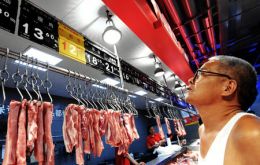
China's rate of inflation eased in August, after hitting a three-year high in July, according to the National Statistics Bureau. Consumer prices in the world's second largest economy rose 6.2% from a year earlier, down from 6.5% in July.
-
Wednesday, August 10th 2011 - 17:54 UTC
Venezuelan inflation soars 2.7% in July; accumulates 25.1% in twelve months

Venezuelan July inflation, as measured by the national index INPC, came in on the high side of expectations at 2.7%, up from June.
-
Tuesday, August 9th 2011 - 21:53 UTC
Inflation in China higher than expected; food prices climb 14.8% in 12 months
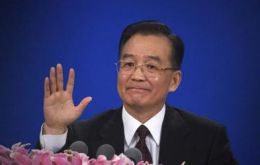
Inflation in China was higher than expected in July, despite a series of efforts by the government to rein in prices. Consumer prices in July rose 6.5% compared with the same month last year, the National Bureau of Statistics said.
-
Friday, July 15th 2011 - 06:21 UTC
Argentines would like to buy at “official” inflation and be paid in real inflation

According to Argentina’s statistics office Indec consumer inflation was 0.7% pushed mostly by the cost of clothing. However private economic consulting offices estimate the index was double the official announcement.
-
Saturday, July 9th 2011 - 06:47 UTC
Inflation at its highest level in three years; concerns over food prices and social unrest
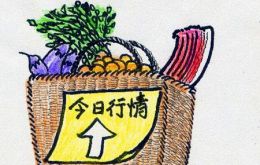
Inflation in China has risen to its highest level for three years, despite a series of interest rate rises and curbs on bank lending. Prices in June rose 6.4% from a year earlier, well above the rate for May.
-
Thursday, July 7th 2011 - 16:20 UTC
Euro-zone decides to contain inflation and hikes interest rates to 1.5%
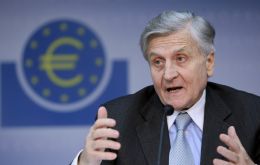
The European Central Bank (ECB) decided on Thursday to raise interest rates to 1.5% from 1.25% in an attempt to cool inflation in the 17-nation Euro zone. ECB president Jean-Claude Trichet said that inflation, now 2.7%, was likely to remain “clearly” above the ECB 2% target over the coming months.
-
Wednesday, July 6th 2011 - 15:48 UTC
China hikes rates for the third time this year to combat inflation
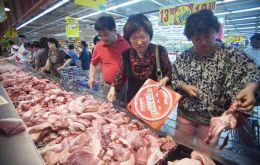
China has increased its main interest rates for the third time this year to try to curb inflation. Chinese central bank, the People's Bank of China, said its one-year lending rate would rise to 6.56% from 6.31% and its one-year deposit rate to 3.5% from 3.25%.
-
Tuesday, July 5th 2011 - 03:23 UTC
June’s index shows result of Uruguay’s battle with inflation remains uncertain
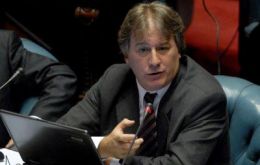
Uruguay consumer prices increased 0.35% in June, completing 8.61% in the last twelve months, which remains above the Central bank target of 4% to 6%, and the latest estimate of 7.8% presented last week by the Executive in its additional budget report to Congress.
